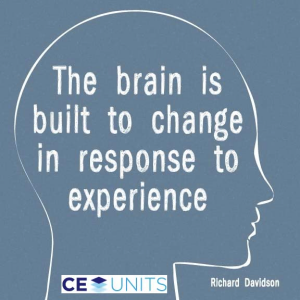Handy List of Words for Healthcare Workers
April 20th, 2024
As a healthcare worker, you are required to keep case notes. It’s important to maintain detailed records through case documentation. It allows you to create successful outcomes for your clients. Always make sure your case notes are useful. Do your best to make sure they provide insight and value. Analyze your notes and see if they would be useful to another case worker. You want to make sure you give an accurate picture of the client’s history, as well as their current situation.
It’s important to use language that is non-judgmental. Neutral language is the most common form of case notes in social work. It’s also helpful if you avoid making assumptions and remember to stick to the concrete facts. You should always indicate clearly when a comment is an observation. It is imperative you make it clear when you are recording the client’s own words by using quotation marks.
Notes are important in this type of work because the courts can subpoena records and other reports; you have to be careful about what you say about your respective client. Write your case notes immediately after you have spoken with a client. Here’s a handy list of words that many social workers use while writing up their case notes:
- Acknowledged
Actively Listened
Addressed
Advised
Advocated
Asked
Assisted
Challenging
Checked In
Clarified
Collaborated
Commended
Confronted
Conducted
Conveyed
Crisis Intervention
Developed
Educated
Empathized
Empowered
Encouraged
Ensured
Established
Explained
Explored
Expressed
Facilitated
Focusing/Refocusing
Framing/Reframing
Goal (setting)
Development/Goal Setting
Guided
Highlighted
Honoring
Identified
Information Giving/Gathering
Informed
Interacted
Interpreted
Joined
Modeled
Observed
Physical Activity
Played
Praised
Presented
Probed
Problem Solving
Prompted
Rapport-building
Recapped
Recommended
Redirected
Reflected
Reflective Listening
Reframed
Reinforced
Reiterated
Reminded
Reviewed
Role-played
Social Skills Practice
Suggested
Supported
Teaching/Lecturing
Urge
Stomp Out the Stigma of Postpartum and Perinatal Depression
April 14th, 2016

Many women feel guilty about feelings of separation that arise before and after the birth of their child. While postpartum depression has become more widely discussed and accepted, antenatal and perinatal depression are often overlooked or simply unheard of. If this is your first pregnancy, everything likely seems overwhelming. How can you prepare yourself for something that you’ve never experienced? Don’t hope for the best and ignore the possibility, create a psychotherapy plan during the early stages of your pregnancy.
The surge of hormones you experience during the late stages of pregnancy can create many significant changes in your life. Appearing in its most basic form, foods you once loved might suddenly seem unappealing. The bigger changes will be the change in lifestyle and dealing with exhaustion. If you are a professional, your regimented schedule will change to accommodate your new child. A simple change in schedule can cause more stress than you might realize. Social activities may become more difficult causing you to feel isolated. Depression doesn’t have to run in your family to develop the symptoms of postpartum and antenatal depression.
Devise a plan for every stage of pregnancy. Prepare for the both the slim possibilities and the inevitable changes. The more planning you do and the earlier you do it will make for a much less stressful pregnancy experience.
For more information on creating a pregnancy psychotherapy plan download our class Interpersonal Psychotherapy for Antenatal and Postpartum Depression
The Reality of an Aging Population: Is Freedom 55 Attainable?
August 24th, 2015
By Megan Ferguson
Dementia is a debilitating illness that is characterized by degeneration of memory, cognition, behavior and the ability to perform activities of daily living. Approximately 35.6 million people worldwide have dementia and there are 7.7 million new cases every year and this is subject to continually increase as consequence of population aging and the projected increase of the aging population. In addition, although dementia mainly affects older adults, it is not attributed to an age-related change as it may lead to disability and lack of independence among older adults around the world. Although incidences of dementia, the most common being Alzheimer’s disease, have been rapidly increasing, no treatment has been developed to cure the disease or reverse its deterioration of the brain and individuals’ functioning capacity. Therefore, research needs to take place to establish inexpensive ways to help individuals reduce their risk of dementia and maintain cognitive function. Recent studies suggest that people who delay retirement have a decreased risk of developing Alzheimer’s disease or a related dementia. However, researchers believe that the age of onset of Alzheimer’s disease and dementia is affected by many more complex risk factors and protective factors that extend beyond simply delaying retirement, which makes this topic relevant to the future health of older adults.
Therefore, since the amount of people with dementia is expected to double by 2040, it is evident that a means to reduce the risk of dementia needs to be developed. However, older adults must decide what activities will be the most effective in helping them maintain cognitive and mental health throughout old age. For some this may be continuing to work or retirement, depending on their current occupation and job satisfaction or other unique ways of exercising their brains that will work for them. Due to the growing aging population and growing risk of dementia in the aging population, Freedom 55 may be attainable for some; however, not for all.
References
Basu, R. (2013). Education and dementia risk: results from the aging demographics
memory study. Research on Aging, 35, 7-31.
Beeri, M.S. & Goldbourt, U. (2011). Late-life dementia predicts mortality beyond
established midlife risk factors. American Journal of Geriatric Psychiatry, 19,
79-86.
Lupton, M.K., Stahl, D., Artcher, N., Foy, C., Poppe, M., Lovestone, S. et al. (2009).
Education, occupation and retirement age effects on age of onset of Alzheimer’s
disease. International Journal of Geriatric Psychiatry, 25, 30-36.
Kryscio, R.J., Abner, E.L., Lin, Y., Cooper, G.E., Fardo, D.W. et al. (2013). Adjusting
for mortality when identifying risk factors for transitions to mild cognitive impairment and dementia. Journal of Alzheimer’s Disease, 35, 823-832.
Marchione, M. (2013, July 15). Delaying retirement can delay dementia, large study
finds. The Associated Press. Retrieved from http://www.nbcnews.com/health/delaying-retirement-can-delay-dementia-large-study-finds-6C10637029.
World Health Organization (2012). Dementia Retrieved November 15, 2013 from
http://www.who.int/mediacentre/factsheets/fs362/en/.
I’m a Social Worker, What’s your Superpower
July 28th, 2015
By Megan Ferguson
Dr. Anna Scheyett, Dean of the College of Social Work for the University of South Carolina discusses the concept of “social workers as superheroes” in her TED Talk. Social workers are social change agents and fight for social justice. Everyone will meet a social worker in some point of their lives as we all experience turmoil at various points of our lives. Additionally, social workers wear a variety of “hats” and work in a variety of settings such as addictions, child welfare, corrections, community development, gerontology, healthcare, mental health, public assistance, disability services, immigrant and refugee services, social policy and many other areas.
Connecting this article to its title, “I’m a social worker, what’s your superpower”, we operate from the strengths perspective and focus on individuals’ strengths, abilities and talents rather than deficits. Social workers’ roles may not be prescriptive, but we fill in the gaps wherever the filling is needed.
Dr. Scheyett’s TED Talk can be found by searching YouTube.
Care Planning from an Interdisciplinary Framework
May 26th, 2015
By Megan Ferguson
Care planning involves answering the following questions:
1. What are the problems/issues?
2. Who is involved?
3. How do we (as professionals) intervene?
4. What are the goals of the intervention?
5. How do we evaluate our intervention?
In order to build on this framework, interdisciplinary care involves teamwork from a variety of professionals. For example, within a hospital, all members of the healthcare team (doctor, nurse, physiotherapist, occupational therapist, social worker, etc.) may be working towards a safe discharge plan for a patient to return home. Interdisciplinary care must occur to bring about improved patient outcomes such as more efficient practice, an increased individualized and patient centered approach and improved quality in care. If healthcare professionals do not have the same intervention goals, the patient may suffer. Therefore, if practitioners focus on a single, shared goal, a patient will be more successful in receiving the care that they require.
In addition, the need for interdisciplinary care should be increasing with:
• A growing aging population with chronic and complex needs
• The increasing knowledge and skill required to provide comprehensive care to patients
• The increasing specialization in healthcare fields
• The growing encouragement to develop multi-faceted teams in healthcare, and
• The increased emphasis on continuity in care planning.
Therefore, changes in practice approaches and interventions need to take place to advocate for the use of integrated care plans. With a growing aging demographic and the development of more complex health problems, it is crucial that interdisciplinary care is used in all areas of the healthcare field. Therefore, it must be represented in practice to improve quality and efficiency of care to all individuals.
Source: Andrew Booth, Steven Ariss,Tony Smith, Pam Enderby,and Alison Roots4 Susan A Nancarrow, “Ten principles of good interdisciplinary team work,” Human Resource Health, 2013: 1-11
5 Reasons therapists are always tired
April 30th, 2015

Therapists play a big role to individuals in recovery. They provide a lot of people with great inspiration. But therapy is not easy, in fact it can be very tiring. Therapists have a very demanding job and because of that, the job can be extremely difficult. Here are some interesting insights from professional therapists:
When you’re on the job, the stakes are always high.
The decisions you make as a therapist will affect people in different ways. That pressure of changing someone’s life for the better can really wear you down as an individual. You can often be drained both physically and mentally.
Therapists do more than listening.
Therapists are constantly processing communication. They do this all the time. Truthfully speaking, the average person can only process about 1.6 conversations efficiently. That means that therapy is more of a cognitive overload, which in turn, can also lead to mental exhaustion.
One hour of therapy is seriously an hour of real demanding work.
You’re way off if you think therapy is a relaxing job. During a typical therapy session you will spend every minute focused on your client. You can’t afford to zone out or check your phone because your client is paying you for your time.
Work isn’t done after therapy is over
After completing a therapy session you will have to make sure you’re entering your notes correctly. You’ll have to be on top of your client’s file. It’s more than just positive communication.
You’re always multitasking
It’s not just about growing your clientele list. You have to manage multiple tasks while shouldering a heavy load of decisions that will affect others. Since your brain is processing so much by listening to your clients on a daily basis, your brain will sometimes trick you into thinking you’re experiencing what your client is experiencing. So sometimes your brain can experience the tragic stuff you hear in a session.
As a therapist you’ve made it a mission to help your clients improve their life in a very real way. Do your best to do that but don’t make their troubles your personal problem. Don’t treat your life as a work-sleep-eat cycle. Make sure you have time to carry out your hobbies in your free time. Spend time with your family and friends as a normal person. Don’t always wear your therapist hat outside of work. Your job is a privilege and it should be treated with the utmost care at all times. For you to be a good therapist you will have to be mentally strong and happy in life.
Antipsychotics May Increase Childs Risk for Medical Issues
April 21st, 2015
Our society can sometimes overuse psychotropic medications. It could be for different reasons but most companies make drugs like this because people believe they are the solution for our problems. Contrary to popular belief, antipsychotics are not ‘quick fix’ solutions. When it comes to children, these type of drugs are frequently misused. Some of these drugs are used because parents sometimes have an unrealistic desire to have their children behave like robots. Well-behaved children would most likely decrease the stress in our busy lives, but giving them antipsychotics is the wrong way to go.
In fact, a new study suggests that prescription antipsychotics can pose a significant risk to children’s health. Researchers have discovered that initiating antipsychotics may actually elevate a child’s risk not only for significant weight gain, but also for Type II diabetes by nearly 50 percent. You really have to evaluate your child before taking on this method.
Some children can truly benefit from antipsychotics, and those are generally the children who have been diagnosed with schizophrenia or bipolar disorder. Recently, more and more children are significantly overprescribed and that’s the main problem. Most of these kids just need parents who are engaged and supportive. Unnecessary consumption of antipsychotics can be very detrimental to their health.
Source: Antipsychotics May Hike Kids’ Risk for Medical Issues (http://psychcentral.com/news/2015/04/08/antipsychotics-may-increase-childs-risk-for-medical-issues/83277.html)
Solution-focused therapy
April 14th, 2015

Solution-focused therapy is a competency-based model that focuses on clients’ strengths and previous successes rather than previous weaknesses and challenges. In addition, solution-focused therapy operates within a focus on clients’ understanding of his/her own concerns/problems or situations and what clients want to change to improve their situation. The basic beliefs behind solution-focused therapy include:
• A focus on solutions rather than problems.
• A therapeutic process that focuses on clients’ desires for change and future goals rather than previous problems or conflicts.
• Encouragement to build-off and continue to engage in current useful behaviors, abilities and strengths.
• A belief that not all problems occur all the time. Thus, in instances where the problem could of occurred and did not can be used by a client and practitioner to work toward constructing solutions.
• A belief that solutions already exist for clients.
• A belief that small incremental changes can lead to larger changes that can be sustained.
Within solution-focused therapy, practitioners help clients find alternatives to current undesired patterns of behavior and/or thinking and collaborate with practitioners to construct solutions or alternatives to these patterns. Solution-focused therapy is an excellent approach to meet clients where they are at, collaborate with clients and uphold client self-determination; which are characteristic values of social work practice.
7 Great Psychology Quotes to Live By
January 15th, 2015
There are quotes and then there are quotes that really sink in and make you think. A good quote will make you think in a new way, push you to make a change and usually originate from great minds. In the spirit of great quotes, we’ve pulled together the best psychology quotes of all time from the best psychiatrists and greatest thinkers of all time for you to enjoy.
1. Meeting of Two Personalities Quote
2. Becoming a Therapist
3. The brain is built to change
4. What screws us up most in life
5) Love is the only way
6) I have discovered the value of psychology and psychiatry
7) Nobody can hurt me
The Therapy Relationship and Outcomes: What Do We Know?
December 16th, 2014
Despite what Big Pharma and Big Medical would have us believe, decades of careful scientific research have documented the effectiveness of psychotherapy. It’s been studied more than nearly any pill, surgical procedure, or medical device. As an old colleague once said, “We’ve studied the snot out of psychotherapy”.
When research evaluates the factors that contribute to psychotherapy success the emerging answer is that, like all complex human endeavors, many factors account for success (and failure): the client, the treatment method, the psychotherapist, the context, and the relationship between the therapist and the client.
We hear often that research finds this last nugget to be impactful: the relationship between the therapist and the client. But few of us have the time to collect and review all the studies on the therapy relationship.
But we’re in luck. A new CEUnits course, Evidence-Based Therapy Relationships summarizes the impact of key elements of the therapy relationship on treatment outcomes. For each therapy relationship element, several therapeutic practices are described, in terms of both the therapist’s contribution and the client’s perspective. The course concludes with a chapter that reviews the research findings on adapting or tailoring the relationship to the individual patient in an effort to achieve that good fit, that optimal match between a unique client and the treatment.
We are very pleased to now offer this course to help support the continued honing of good practice, and help invigorate us with the confidence of knowing our work matters.











